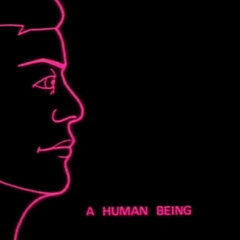
Everything posted by Michael*
-
BioShock Infinite
By no means am I the biggest FPS fan in the world, but I've heard so many amazing things about this series that I feel like giving it a whirl.
-
Models Competition
Hannah Lips: 8.5 Smile: 8.5 Hair: 9 Eyes: 7 Nose: 7 Abs: 10 Cleavage: 6 Butt: 7 Legs: 7.5
-
Battle of the Bods
2
-
The most beautiful face of cinema
Ashley Judd 3-0 Megan Fox Summer Glau 3-0 Brooke Shields Freida Pinto 3-0 Kelly Brook Liv Tyler 1-2 Ziyi Zhang ...................................... Cameron Diaz 1-2 Chyler Leigh Rose Byrne 3-0 Kristen Bell Monica Bellucci 0-3 Rosario Dawson Angelina Jolie 3-0 Natalie Dormer
-
Fashion Models CHAMPIONS LEAGUE
E1 Isabeli Fontana E2 Miranda Kerr F1 Josie Maran F2 Rosie Huntington-Whiteley G1 Daniela Pestova G2 Natalia Vodianova H1 Laetitia Casta H2 Doutzen Kroes
-
Lily Cole
Miu Miu store launch event, London (December 2010) -
- Karen Gillan
- Last movie you saw...
- Football
-
Football
As I understand it, the plan is to demolish the venues after the tournament and rebuild them brick by brick in third world countries, all of whom are (ahem) presumably in desperate need of extravagantly designed, space-age football grounds. A spectacular waste of money by anyone's standards, but no doubt Sepp and the gang will see it as Qatar's money to waste.
-
Models Competition
Josie Lips: 8 Smile: 10 - one of the best around, in my humble opinion. Hair: 8 Eyes: 8.5 Nose: 7 Abs: 8 Cleavage: 8 Butt: 9 Legs: 7
-
Fashion Models CHAMPIONS LEAGUE
I think everyone's looking past appearances here - the one thing we all seemingly have agreed on so far is that Claudia's beauty is beyond doubt.
-
Fashion Models CHAMPIONS LEAGUE
A1 Gisele Bundchen A2 Valentina Zelyaeva B1 Emanuela De Paula B2 Candice Boucher C1 Noemie Lenoir C2 Olga Kurylenko D1 Emily DiDonato D2 Cindy Crawford
-
Battle of the Bods
2.5 (boosted by the additional pic)
-
Fashion Models CHAMPIONS LEAGUE
Believe me she is really beautiful (in reality) but you are right about her cold/without life beauty. I used to be SO crazy about Claudia but when i look back at her work, some of her edits look lifeless And I have exactly the same sensation with lovely Doutzen. Very beautiful but somehow very boring model. This. I'm by no means a huge fan of Rebecca, but I always found Claudia incredibly bland. The other girls associated with the 90's boom period all had strong personalities and a certain "x factor" that I just don't see in Claudia.
-
Katie McGrath
-
The Best CSI
Definitely Vegas for the best one. The others are reliably decent but I slightly prefer Miami, simply because David Caruso and his shades crack me up.
-
Best Stuff Magazine Cover
Brooke x3 Nicky x2
-
Best of Editorial Images.
- Models Competition
Xenia Lips: 8.5 Smile: 6.5 Hair: 7 Eyes: 8 Nose: 6 Abs: 8 Cleavage: 6 Butt: 9 Legs: 7.5- Best of Advertisement Images.
- THIS DITA OR THAT DITA
Peach x5- Best ESQUIRE COVER
Black & white x5- The Best VS Catalogue cover
Alessandra x3- Best VANITY FAIR COVER
Monica x3 Penelope x2 - Models Competition



